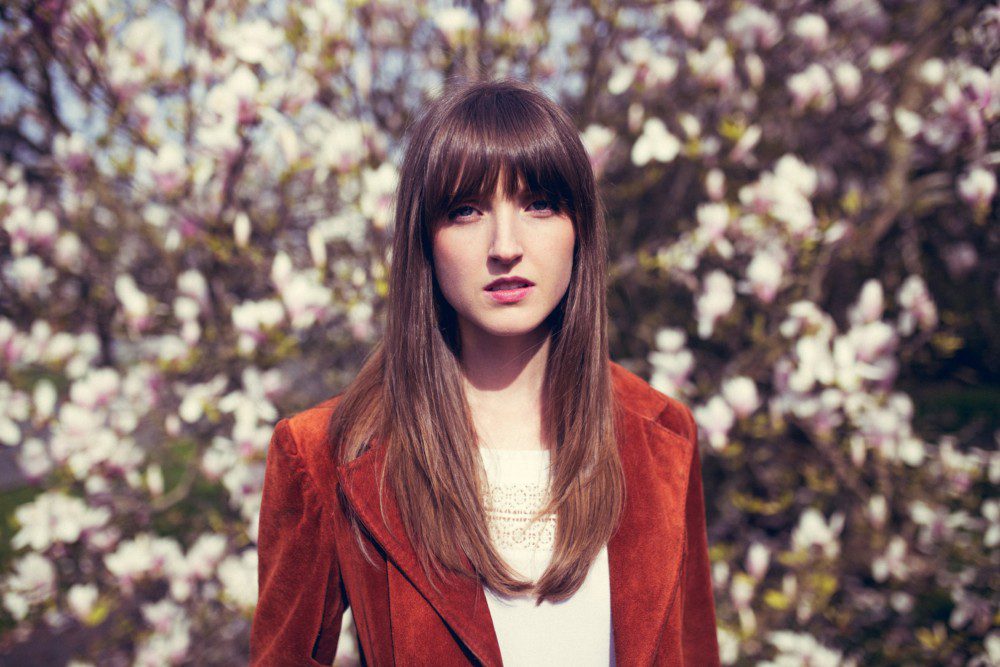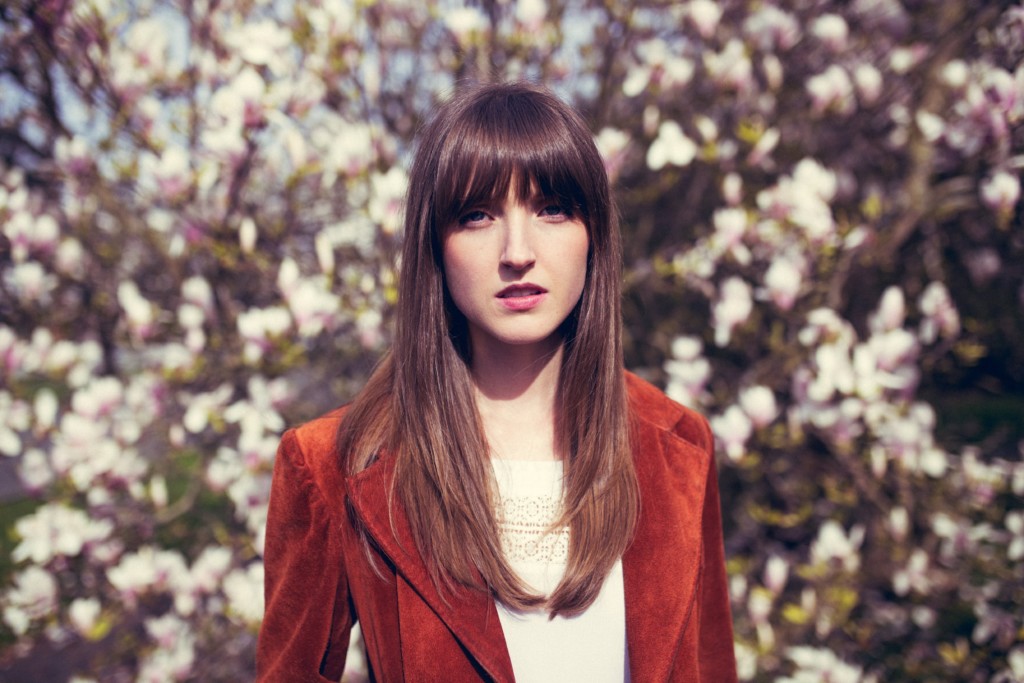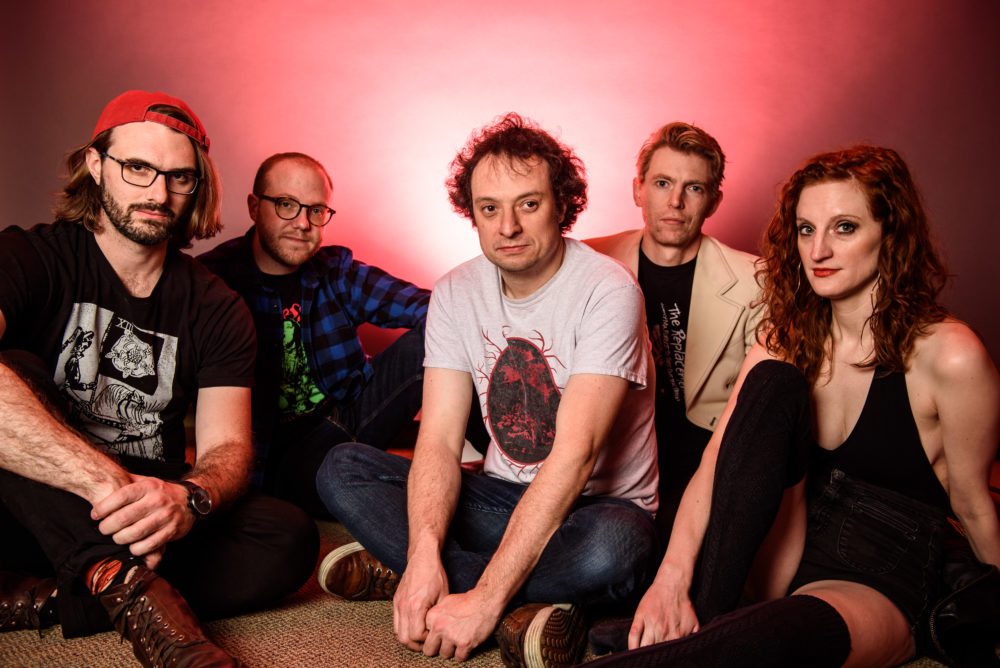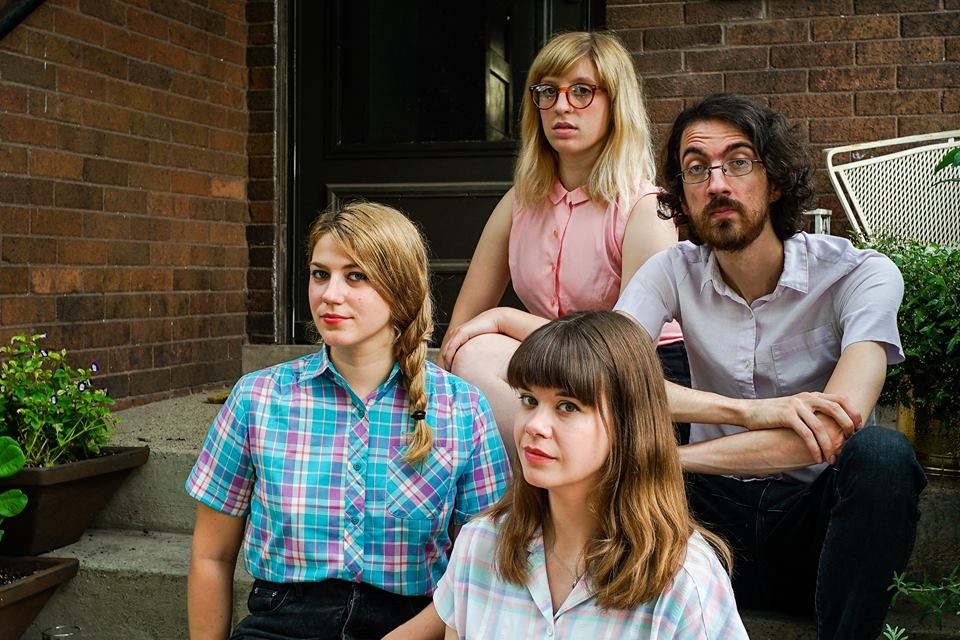

Like a child’s pirouette, the new single from songwriter Lizzie Weber, “When You Look At Me,” spins gentle and dreamlike. Inspired by the early days of her relationship with her now-husband, “When You Look at Me,” is sung with the sort of tender lilt that plunges someone into the pool of memory. It’s visceral. You can hear Weber’s sighs, their locked eyes, the heart swells, and—in with subtle repetition of “when you look at me that way again”—the sweet, time-stopping daze of new love.
For years, Weber has written songs like these. Weber was born and raised in St. Louis, MO, where she released her well-received 2014 debut, but moved to California to pursue acting. When Audiofemme caught up with the songwriter, who eventually settled in the Seattle in 2016, we learned a little more about her original dream to act, her obsession with contemporary female artists of the 1990s, and the wellspring of inspiration she finds in life’s relationships and transitions.
AF: When did you get into music? What was the early inspiration to write songs?
LW: I remember developing an appreciation for music as a child. The first album I ever had was a gift from my dad at age six: Alison Krauss & Union Station’s Everytime You Say Goodbye. My older brother was taking piano lessons and eventually I followed suit. I would, of course, learn the classical pieces assigned to me by my teacher but also ask that she let me learn pieces by contemporary female artists of the 90’s: Jewel, Sarah McLachlan, and Fiona Apple to name a few. I don’t think it made her too happy! But, those women were taking the industry by storm, demonstrating to the world the power of balladry and dynamic songwriting. By fourteen I began composing instrumental pieces on the piano, and at age eighteen I began learning to play guitar after a friend gave me all of Joni Mitchell’s catalogue to listen to; I was determined to become adept at both instruments.
AF: You originally pursued acting in Studio City— do you still act? Why did you decide to switch gears and focus on music?
LW: Yes, I did. I suppose I still act on occasion in my music videos, but other than that, not really. That’s still a passion of mine that’s very much alive, but there was something about songwriting that made it become the more important passion. Perhaps because I didn’t have to wait to be cast in a play or film to create. I could make art on my own time, and that was much more attractive to me after spending a few years in LA.
AF: How long have you been active in the Seattle scene? Are there other local musicians you watch?
LW: I moved to the northwest in 2016 and have pretty much been gigging around the region since that time. The amazing thing about the Seattle music scene is that everyone seems to have a lane, and if there isn’t one, they just make one for themselves. When I was performing in St. Louis, I would occasionally have people come up to me after shows and ask, “So, what genre are you?” I didn’t much like feeling as though I had to choose, but I do understand the desire to be able to classify an artist as something. I haven’t gotten that question since moving here, and I don’t think I ever will. I feel as though Seattle’s music scene is multi-faceted. I think it only creates more growth as a songwriter and I’m very attracted to that approach in writing and producing my work. It’s booming with talent and I’m very proud to be a part of the community.
AF: How do you define your music?
LW: Intimate storytelling with influences of folk, pop and world music.
AF: What inspires you—other artists, your surroundings, a phrase? How are your songs born?
LW: All of the above. Personal life experiences, traveling and experiencing cultures that are foreign to my own, books, nature, poetry, romance. Most of my music has been inspired by transitions in my life or relationships that left me changed somehow, for better or worse. I find that those are stories that are worth sharing, even though it’s not always easy to.
AF: What are the biggest challenges for you when writing a song? When performing?
LW: I think it’s easy to want to resort to the same devices when songwriting; by that I mean perhaps continuing to write in a meter or rhythm that you’re attracted to, but if I find that happening I will challenge myself to go back and make significant changes. I don’t like to rush in finishing pieces. Most songs that I write, I like to sit on for a few months and let them settle in. Do I like the structure? Is the melody interesting? Are the two working together harmoniously or fighting each other? That’s where my mind seems to go now when writing. I’m not interested in making records that all sound the same. I would not be content with that. I want to create bodies of work that can clearly be set a part from one another, but have one soul weaving throughout them all: my own.
I suppose performing my songs feels like the easy part, because the hard work has been done. At this point, I get to connect with strangers and friends alike, and hope that the stories are resonating.
AF: In the bio on your website you talk a lot about how St. Louis made you, but what about Seattle/Fidalgo—how did those places influence your music and the person you’ve become?
LW: Moving away from St. Louis as an artist was one of the hardest changes to make in my adult life. I had a band, supportive family and good friends, and a kind and supportive scene in St. Louis. I’m deeply grateful for my roots there. But in the end, staying in your comfort zone, especially as an artist, can potentially be creatively crippling. I didn’t know a soul when I moved out here. It was lonely at first. I was playing open mics, asking folks to hop on bills with me, collaborating with instrumentalists I never thought I would, and in the end it was the biggest personal and professional growth period of my life. They welcomed me with open arms and I’m very grateful for that. It taught me the important of patience, a virtue that isn’t always easy to embrace, and to remain open to change. Some of the most beautiful experiences in my life arose out of change, and the same goes for my songwriting.
AF: Tell me about the new single, “When You Look at Me.” What inspired the lyrics? Is the song autobiographical?
LW: I actually wrote the lyrics for this song years ago, back in 2015, when I fell in love with my (now) husband. At first I had arranged it as a slow, finger-picked melody on guitar. Eventually a few friends asked me to perform it at their weddings because of the intimate lyrics, and I did. For a long time, it still felt unfinished. In the winter of this year I created a demo in my home-studio and decided to just record and release it as a single.
AF: Is the new single teasing a forthcoming album? If so, when can we expect that to come out?
LW: There’s a chance this song will be on the next album, but no promises there. My next album will be recorded this fall and released in 2020.
AF: What are some goals you have for your music career?
LW: To continue to create music that connects with audiences near and far, friends and strangers alike. To be a part of the movement that is shedding light on female artists and our long history as the underrepresented gender in our industry. Perhaps the most important responsibility alongside being a performer is giving back, and creating more opportunity for those without the proper resources to follow in our footsteps.




